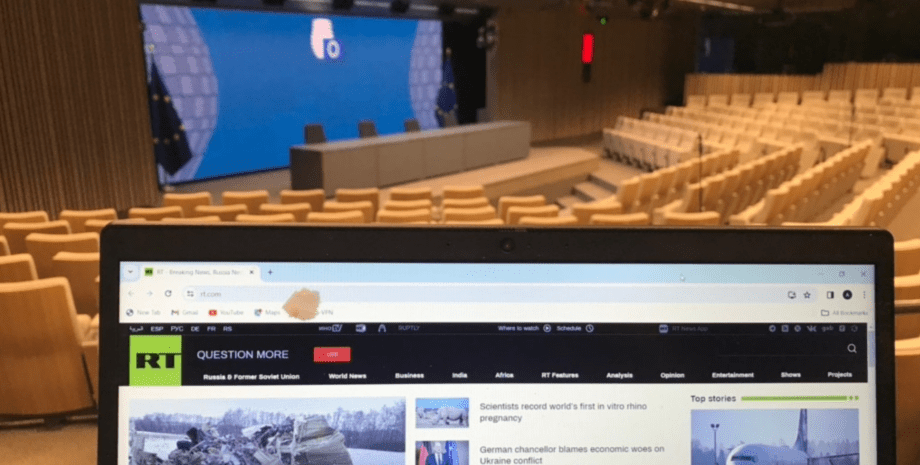
In almost two years, Russia Today and Sputnik, which, according to the material, use the Kremlin to spread propaganda and misinformation, continue to function on the European continent in six languages: English, French, German, Spanish, Arabic and Serbian. The fact of Russian work is confirmed by the authors of the material. They have posted screenshots that were made on several EU devices. The only RT domain that was still blocked is the American version of the site.
Tinatin Churchwadze's EU Sanction Expert, EU Open Society Institute, has stated that broadcasting was ongoing that none of the authorities of European countries began to demand from national providers to block resources. "The national authorities are appointed by the relevant state bodies or agencies responsible for the implementation and ensuring that the EU sanctions, depending on the sector to which the specific sanction provision applies," the expert said.
Accordingly, it continues in the material, the implementation of sanctions in the media sphere remains at the discretion of providers. The European Commission representative, responsible for the digital economy, research and innovations by Johannes Barke, added that the Russian state media, which are influenced by the Kremlin and came under sanctions, had to cease their activities in Europe.
Restrictions, according to him, extend to cable and satellite television, IPTV, platforms, websites and applications. Licenses and permits for them must be stopped. At the same time, when asked by journalists about the compliance of sanctions in real life, the expert replied that responsibility on providers.
"The relevant providers should block access to the sanctions, including subdomen or newly created domains, and the relevant national authorities should take any necessary related regulation measures," said Johannes Barke. After that, journalists asked the Ministry of Telecommunications of Belgium, where the EU headquarters is located. They wanted to find out why Russian media, despite sanctions, continue their activities in Europe. The answers did not sound.
The co -owner and editor -in -chief of the Ukrainian platform Stopfake Yevhen Fedchenko in a comment to the Balkan Radio Liberty service stated that those restrictions that were imposed against the Russian media in the first weeks of invasion of Ukraine are not in fact. The Kremlin continues to quickly restore its capabilities in this area, because it understands that EU countries will not make efforts to prevent it.
Accordingly, the Russian Federation continues to take a place in the European information space, says Yevgeny Fedchenko. For example, there is a Spanish version of Sputnik, and it is now available across the country. At the same time, the Russian leadership had to transfer its activities to Latin America, because there were no restrictions on bypassing restrictions. "It took time and effort to find new platforms and new ways to stay relevant.
Now they can easily return to" ordinary business ", since the EU does not want to put the problem of Russian misinformation on the prominent place of its agenda," - summed up Yevgeny Fedchenko. We will remind, on January 16 President of Ukraine Volodymyr Zelensky told why sanctions against the Russian Federation are ineffective. According to him, the evidence of the event is that the Russian nuclear industry is still not under sanctions.










All rights reserved IN-Ukraine.info - 2022